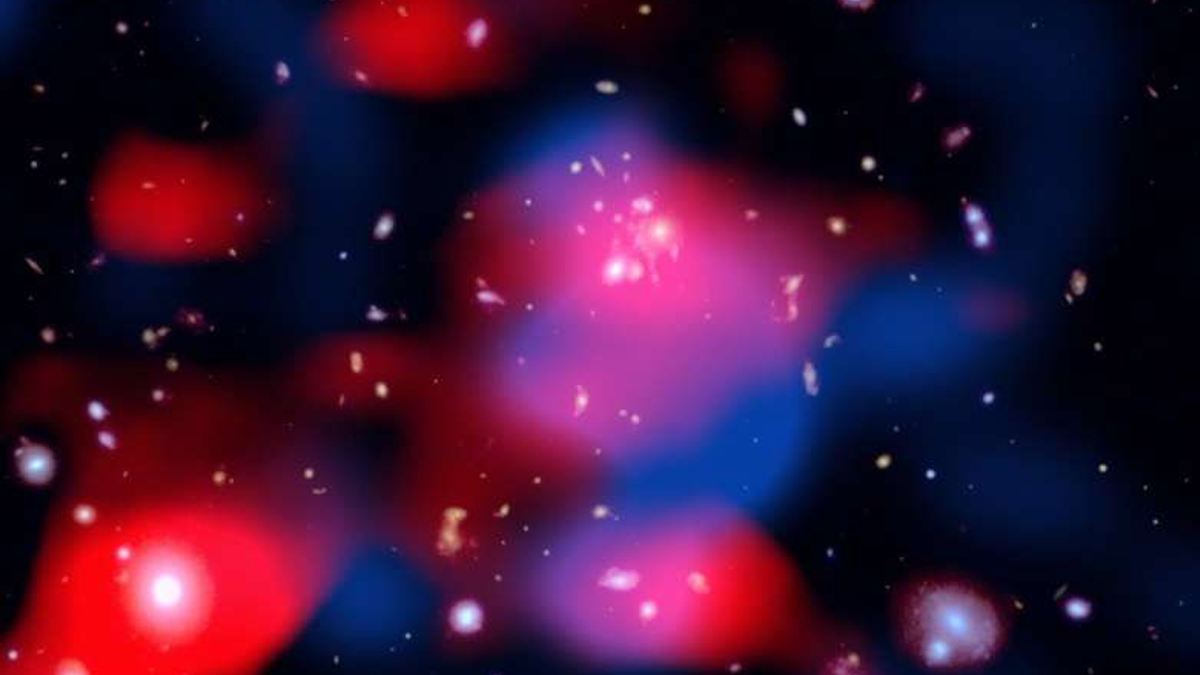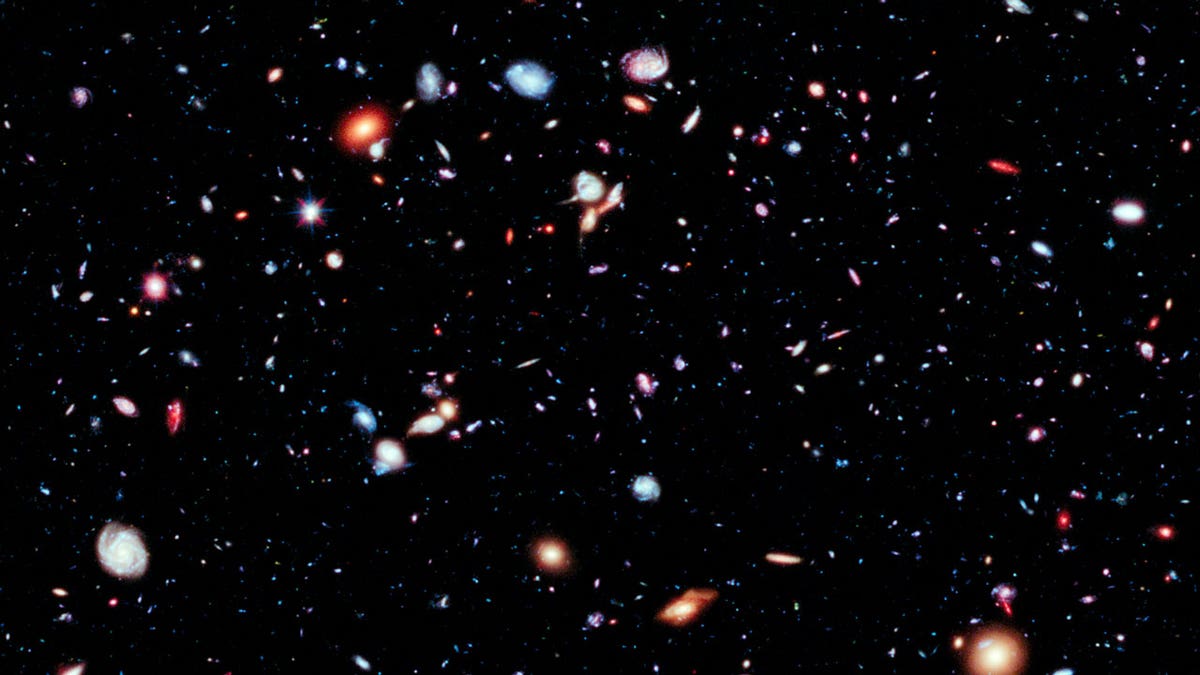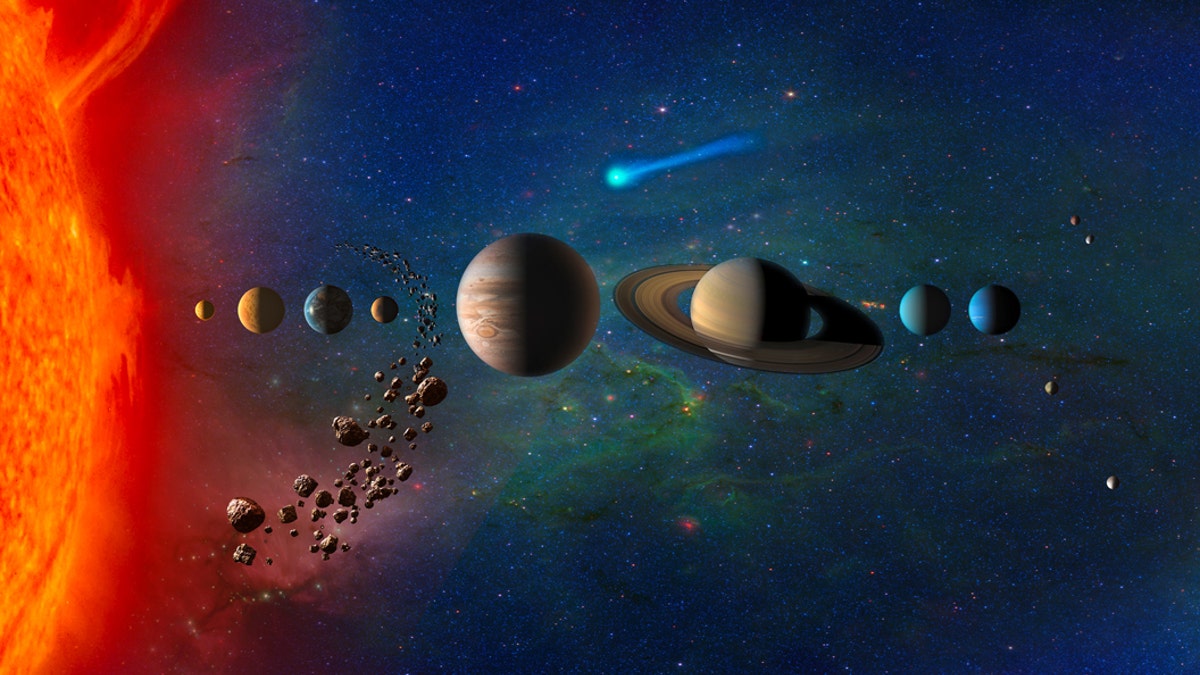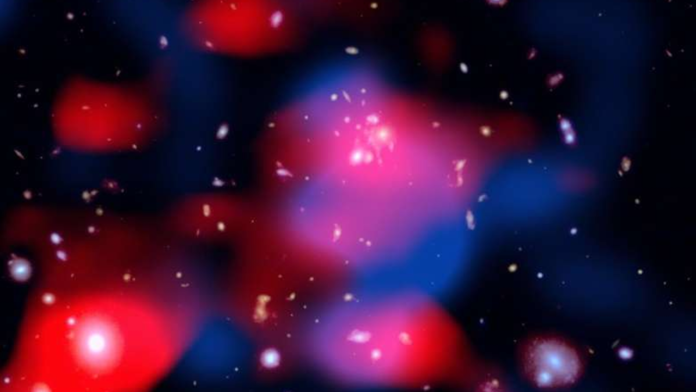NEWYou can now listen to Fox News articles!
Astronomers studying a distant galaxy cluster stumbled upon ancient radio signals that might hold clues to the formation of the early universe.
While studying the distant galaxy cluster known as SpARCS1049, astronomers detected faint mysterious radio waves, according to a study published in The Astrophysical Journal Letters and available on the pre-print server Xrxiv.
The discovered radio waves, which took 10 billion years to reach Earth, originated from a vast region of space filled with high-energy particles and magnetic fields.
These vast clouds of high-energy particles are known as a mini-halo. A mini-halo has never been detected this deep into space before, according to the study.

This stunning image reveals a distant galaxy cluster teeming with energy. (Chandra X-ray Center)
Mini-halos are described in the study as faint groups of charged particles. These groups are known to emit both radio and X-ray waves. Mini-halos are typically found in clusters between galaxies.
Roland Timmerman of the Institute for Computational Cosmology of Durham University and co-author of the study said in a statement in Phys.org how these particles are important for the creation of our universe.
“It’s astonishing to find such a strong radio signal at this distance,” Timmerman said. “It means these energetic particles and the processes creating them have been shaping galaxy clusters for nearly the entire history of the universe.”
SCIENTISTS DETECT MYSTERIOUS RADIO WAVES COMING FROM BENEATH ANTARCTICA’S ICE

This image made available by the European Space Agency shows thousands of galaxies captured by the Hubble Space Telescope in observations from 2002-2009. (Leiden University, and the HUDF09 Team via AP)
The astronomers analyzed data from the Low Frequency Array (LOFAR) radio telescope. The LOFAR is made up of 100,000 small antennas across eight European countries, according to the study.
The team of astronomers believes there are two causes for the makeup of these mini-halos.
According to the study, the first explanation is supermassive black holes found at the heart of galaxies. These black holes can release high-energy particles into space.
The astronomers are perplexed as to how these particles would escape such a powerful black hole to create these clusters.

The radio signals were discovered outside our known solar system in a distant galaxy cluster. The signal took 10 billion years to reach Earth. (NASA)
The second explanation, according to the study, is cosmic particle collisions.
These cosmic particle collisions occur when charged particles filled with hot plasma collide at near-light speeds. These collisions smash apart, allowing the high-energy particles to be observed from Earth.
According to the study, astronomers now believe that this discovery suggests that either black holes or particle collisions have been energizing galaxies earlier than previously believed.
New telescopes being developed like the Square Kilometer Array will eventually let astronomers detect even more faint signals.
CLICK HERE TO GET THE FOX NEWS APP
Julie Hlavacek-Larrondo from the University of Montreal and co-lead author of the study said in a statement she believes this is just the beginning to the wonders of space.
“We are just scratching the surface of how energetic the early universe really was,” Hlavacek-Larrondo said in the statement. “This discovery gives us a new window into how galaxy clusters grow and evolve, driven by both black holes and high-energy particle physics.”
Nick Butler is a reporter for Fox News Digital. Do you have any tips? Reach out to Nick.Butler@Fox.com.

